Share
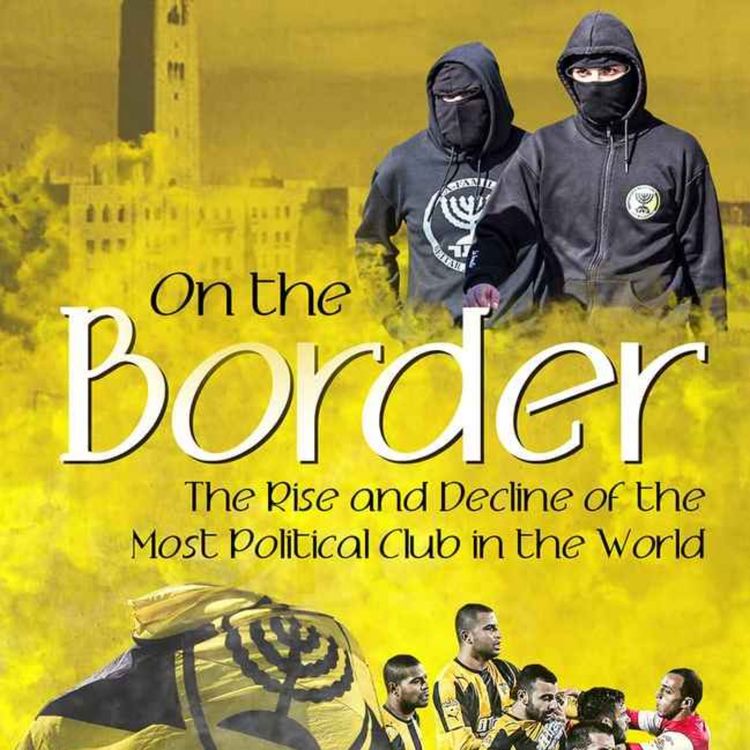
Jerusalem Unplugged
Why is Beitar Jerusalem the most political football club in the world with Shaul Adar
In December 2020, an Israeli football club made worldwide headlines. The news that a UAE royal had bought 50 per cent of Beitar's shares shook Israel and the football world. Beitar, proclaimed by some of its own fans as 'the most racist club in the country', is a club like no other in Israel. While Israeli football as a whole is a space where Israelis of all ethnicities and foreigners can co-exist, Beitar won't even sign a Muslim player for fear of its own far-right supporters' group, La Familia. In this episode I talk to Shaul Adar the author of On the Border a the fascinating tale of a club that began as a sports movement of a liberal national Zionism party and became an overt symbol of right-wing views, Mizrahi identity and eventually hardcore racism and nationalism. With the author we explored explored the radicalisation of Beitar and the fight for the soul of the club between the racists and open-minded fans. Founded in 1936, the club took its name from a Zionist organization set up in 1923 by students in the capital of Latvia, Riga, following a visit by Ze’ev Jabotinsky, the Zionist Revisionist and founder of the paramilitary group Irgun. For thirty years, under the British Mandate, impoverished young Mizrahim (Jews from Arab countries) had kicked a ball around Jerusalem’s Musrara neighbourhood with Arab friends. The war of 1948 radically changed that. Subsequent events sharpened the divide, leading to the unrepentant racism of La Familia, Beitar “ultras” who began by making monkey noises at a player from Cameroon and graduated to chants threatening death to Arabs. Employing violence and intimidation, they ensured no Muslim could play for Beitar.
More episodes
View all episodes
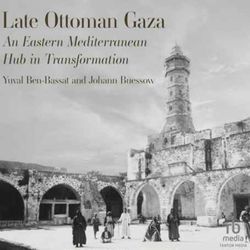
130. Late Ottoman Gaza with Yuval Ben Bassat
57:05||Season 6, Ep. 130Until recently, Gaza attracted little attention in historical scholarship. This book innovates by examining late Ottoman Gaza’s diverse society, its built environment, and its political dynamics. The introduction sets the stage to better understand the vital contexts impacting the role and status of Gaza as compared to other cities in the Eastern Mediterranean, provides analyses and new resources for the study of late Ottoman Gaza, and presents state-of-the-art methodology in urban history as applied to Gaza. Enjoy the interview with Yuval Ben Bassat.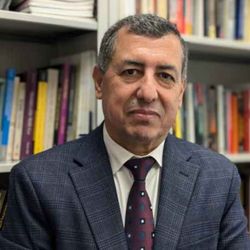
129. Gaza with Mkhaimar Abusada
55:51||Season 6, Ep. 129My guest in this episode is Dr Mkhaimar Abusada, He received his PhD from the University of Missouri-Columbia in 1996 and is an associate professor at Al-Azhar University of Gaza and the former chair of the university's political science department. He has authored one book, and many academic articles in local and internationally recognized academic journals. He has also written for Project Syndicate, the Carnegie Endowment for International Peace, and Washington Institute for Near East Policy. We talked about his experience leaving Gaza at the beginning of the war and then we delved into international and Palestinian politics.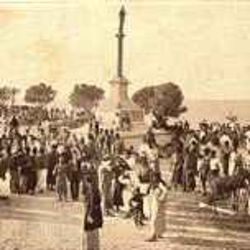
128. Palestine's Christians and the Nationalist Cause with Erik Freas
01:09:26||Season 6, Ep. 128In this episode I have interviewed Erik Freas that recently has edited a volume published by Routledge looking at Palestinian Christians and the nationalist cause through the late Ottoman and Mandatory periods. This book provides an historical overview of Palestine's Christian communities and their role in the Palestinian nationalist movement during the late Ottoman and British mandatory periods. More than being a history of Palestine's Christian Arabs, the book focuses on Palestine's Christians during the formative period of Palestinian Arab national identity, attentive to the broader topic of the relationship between nationalism and religion--in this case, between Arab identity and Islam. Whereas until recently historians have tended to assume that national and religious identities are distinct and mostly mutually exclusive things, more recent scholarship has addressed the fact that often there exists considerable overlap between the two, though it should be noted, often in ways that are not by any means inherently exclusive of those not belonging to the majority faith, as is the case here.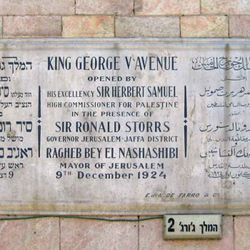
127. Ronald Storrs, the man and Jerusalem with Christopher Burnham
53:27||Season 6, Ep. 127Today I had the pleasure to talk to Christopher Burhnham who recently published Sir Ronald Storrs Personality and Policy in Mandate Palestine, 1917-1926 with Routledge. While some may say that we already know enough on Storrs, the reality is that his legacy in Jerusalem is not only fully understood and neglected, but given the lengthy rulership, we still have to uncover more.It builds upon Edward Said’s work on the Orientalist ‘determining imprint’ by arguing that Storrs took a deeply personal approach to governing the city; one determined by his upbringing, his education in the English private school system and his service as a British official in Colonial Egypt. Burnham recognises the influence of these experiences on Storrs’ perceptions of and attitudes towards Jerusalem, identifying how these formative years manifested themselves on the city and in the Governor’s interactions with Jerusalemites of all backgrounds and religious beliefs. It also highlights the restrictions placed on Storrs’ approach by his British superiors, Palestinians and the Zionist movement, alongside the limitations imposed by his own attitudes and worldview. Placing Storrs’ personality at the centre of discussion on early Mandate Jerusalem exposes a nuanced and complex picture of how personality and politics collided to influence its everyday life and built environment.
126. Christian Zionism and the Israel Lobby A Conversation with Awad Halabi and Ilan Pappe
48:24||Season 6, Ep. 126Today it's with great pleasure that I recast and interview that took place on October 2024 between Hawad Halabi and Ilan Pappe, both friends and guests of Jerusalem Unplugged. Ilan Pappe discussed his latest publication Lobbying for Zionism on Both Sides of the Atlantic.A special thanks goes to the Friends of Sabeel North American as they allowed me to republish the interview and also the Palestinian Christian Alliance for Peace.The full conversation, with more comments and questions from the audience can be found on Youtube.https://www.youtube.com/watch?v=ODub0s-oMLQ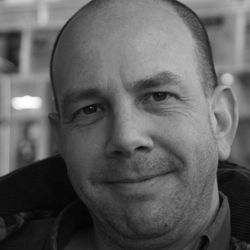
125. Israel and Turkey with Howard Eissenstat
53:11||Season 6, Ep. 125In this first episode of the new year, I had the opportunity and pleasure to talk to Howard Eissenstat who currently is is an Laurentian Associate Professor of Middle East history and History Department Chair at St. Lawrence University and non-resident scholar at the Middle East Institute in Washington. With Howard we first looked at the legacy of President Carter in the Middle East and from there we unpacked the long and complex relations between Israel and Turkey. Lastly, as we are approaching the transition from the Biden to the Trump administrations we tried to understand what this means for Turkey.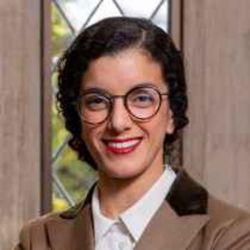
124. Palestinian Politics with Dana El Kurd
53:08||Season 6, Ep. 124There is so much talking about Israel, the war on Gaza, Lebanon and now Syria, but what about Palestinian politics? In this episode I talked to Dana El Kurd a Palestinian political scientist with a deep knowledge and understanding of Palestinian politics. We started our conversation discussing her book published in 2020 Polarized and Demobilized: Legacies of Authoritarianism in Palestine, from there we move to talk about the incoming Trump administration, the role of Saudi Arabia but more importantly how politics is experienced and imagined in Palestine.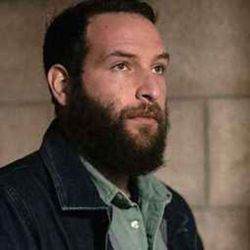
123. Peace Now with Mauricio Lapchik
01:01:02||Season 6, Ep. 123In the first episode of season 6 I have interviewed Maurcio Lapchik, the Director of External Relations at Peace Now (Shalom Akshav), the largest and longest-standing Israeli movement advocating for peace through public pressure. While we briefly introduced Peace Now to those who don't know yet this organization, we then discussed the current standing of the peace camp in Israel. While the picture is rather grim, Mauricio keeps hoping for the best.
122. Daybreak in Gaza with Mahmoud Muna and Matthew Teller
01:19:17||Season 5, Ep. 122This is Gaza – a place of humanity and creativity, rich in culture and industry. A place now utterly devastated, its entire population displaced by a seemingly endless onslaught, its heritage destroyed.Daybreak in Gaza is a record of an extraordinary place and people, and of a culture preserved by the people themselves. Vignettes of artists, acrobats, doctors, students, shopkeepers and teachers offer stories of love, life, loss and survival. They display the wealth of Gaza’s cultural landscape and the breadth of its history.Daybreak in Gaza humanises the people dismissed as statistics. It stands as a mark of resistance to the destruction and as a testament to the people of Gaza.